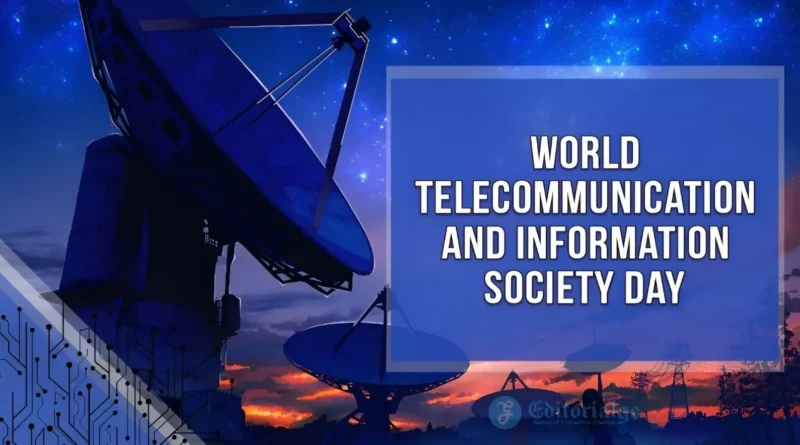WORLD TELECOMMUNICATION DAY 2023
Telecommunication Day, also known as World Telecommunication and Information Society Day (WTISD), is celebrated annually on May 17th. It is an observance established by the International Telecommunication Union (ITU), a specialized agency of the United Nations responsible for issues related to information and communication technologies (ICT).
The Purpose of Telecommunication Day
It is to raise awareness about the importance of communication technologies and their role in bridging the digital divide, promoting socio-economic development, and fostering global communication. Each year, a specific theme is chosen to highlight different aspects of ICT and its impact on society. The theme for this year’s International Telecommunication Day is ‘Empowering the least developed countries through information and communication technologies’.
The theme for Telecommunication Day varies from year to year, with organizations and professions focusing on topics such as:
1. Artificial Intelligence (AI) for Sustainable Development: Exploring the potential of AI to address social, economic, and environmental challenges and promote sustainable development.
2. Women in ICT: Promoting gender equality and encouraging women’s participation and leadership in the ICT sector.
3. Innovation and Digital Transformation: Examining how digital technologies drive innovation, transform industries, and create new opportunities.
4. Building Trust in the Digital World: Addressing cybersecurity challenges and promoting trust, privacy, and responsible use of ICT.
On Telecommunication Days, various events, conferences, seminars, workshops, and exhibitions are organized globally to discuss, educate, and showcase the latest advancements and trends in telecommunication and ICT. It is an occasion for stakeholders, including government organizations, private sector companies, NGOs, and individuals, to collaborate, share knowledge, and explore strategies for leveraging ICT for societal progress.
Telecommunication Day serves as a reminder of the importance of accessible and reliable communication networks and the need for continuous efforts to bridge the digital divide and harness the potential of ICT for the betterment of individuals and communities worldwide.
Telecommunication refers to the transmission of information, signals, and messages over long distances using various technological tools. It involves the exchange of information in the form of voice, data, video, and other multimedia formats. Telecommunication systems enable communication between individuals, organizations, and devices across different locations.
Telecommunication is used in a wide range of applications and industries, including:
1. Telephone Networks: Traditional telephone networks use telecommunication to enable voice communication between individuals using landlines or mobile phones.
2. Internet Communication: The Internet relies on telecommunication networks to transmit data packets between computers, servers, and other connected devices. This includes email, instant messaging, video conferencing, and browsing the web.
3: Broadcasting: Television and radio broadcasting utilize telecommunication to transmit audio and video signals over the airwaves to reach a large audience.
4. Mobile Communication: Mobile telecommunication systems, such as cellular networks, enable wireless communication between mobile devices, allowing voice calls, text messaging, internet access, and various applications.
5. Satellite Communication: Telecommunication satellites are used to transmit signals over long distances, providing services like television broadcasting, global positioning, and long-distance telephone calls.
Factors to Consider for Effective Telecommunication System Management
1. Network Infrastructure: Building and maintaining a robust network infrastructure is crucial. This includes physical components such as cables, routers, switches, satellites, and towers.
2. Bandwidth Management: Ensuring sufficient bandwidth to handle the volume of data and traffic is essential for smooth communication. Bandwidth management involves optimizing network resources and prioritizing critical services.
3. Security: Protecting telecommunication networks from unauthorized access, data breaches, and cyber threats is vital. Implementing security measures such as firewalls, encryption, and access controls helps safeguard sensitive information.
4. Maintenance and Upgrades: Regular maintenance, monitoring, and upgrading of network components are necessary to ensure reliable and efficient communication. This includes routine checks, software updates, and hardware replacements.
5. Service Quality: Managing telecommunication systems involves maintaining high-quality services, including minimizing downtime, ensuring clear voice and data transmission, and providing satisfactory user experiences.
Picture Credit: Editorialge – Source of Impressive Creation




